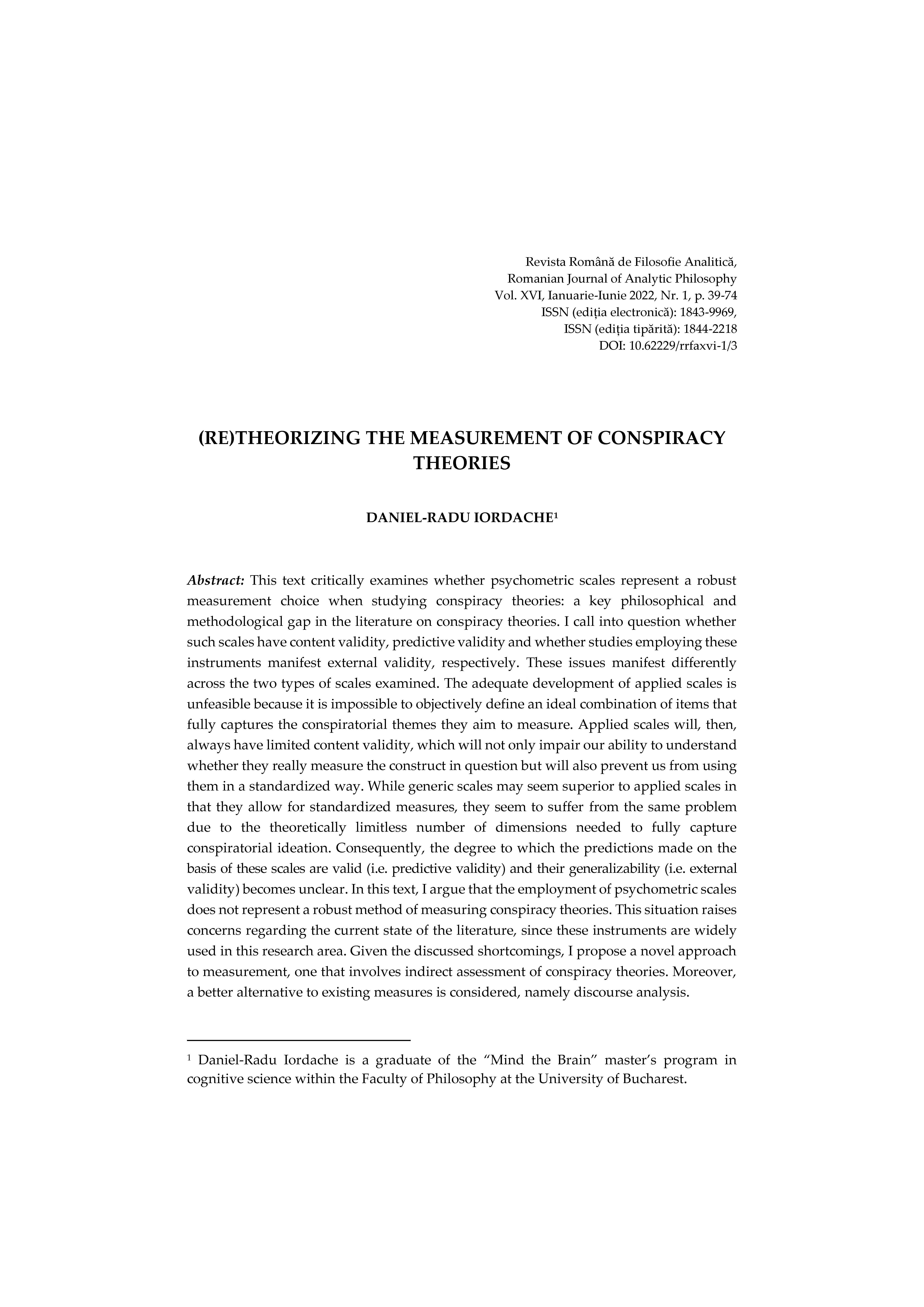(RE)THEORIZING THE MEASUREMENT OF CONSPIRACY THEORIES
DOI:
https://doi.org/10.62229/rrfaxvi-1/3Keywords:
conspiracy theories, psychometric scales, measurement validity, content validity, methodological critiqueAbstract
This text critically examines whether psychometric scales represent a robust measurement choice when studying conspiracy theories: a key philosophical and methodological gap in the literature on conspiracy theories. I call into question whether such scales have content validity, predictive validity and whether studies employing these instruments manifest external validity, respectively. These issues manifest differently across the two types of scales examined. The adequate development of applied scales is unfeasible because it is impossible to objectively define an ideal combination of items that fully captures the conspiratorial themes they aim to measure. Applied scales will, then, always have limited content validity, which will not only impair our ability to understand whether they really measure the construct in question but will also prevent us from using them in a standardized way. While generic scales may seem superior to applied scales in that they allow for standardized measures, they seem to suffer from the same problem due to the theoretically limitless number of dimensions needed to fully capture conspiratorial ideation. Consequently, the degree to which the predictions made on the basis of these scales are valid (i.e. predictive validity) and their generalizability (i.e. external validity) becomes unclear. In this text, I argue that the employment of psychometric scales does not represent a robust method of measuring conspiracy theories. This situation raises concerns regarding the current state of the literature, since these instruments are widely used in this research area. Given the discussed shortcomings, I propose a novel approach to measurement, one that involves indirect assessment of conspiracy theories. Moreover, a better alternative to existing measures is considered, namely discourse analysis.





